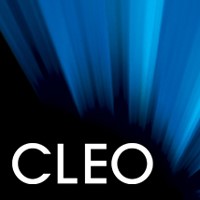Abstract
Frequency-selective data storage (FSDS) offers a means of storing multiple data bits at single spatial locations. In one approach to FSDS (frequency-domain FSDS1), distinct spectral storage cells are defined and are accessed by laser tuning. Operation with distinct spectral channels mandates that single-channel access times exceed the inverse channel width—a serious speed limit given the narrow channel widths Δvh, necessary to fully utilize many storage materials. In another FSDS approach (time-domain FSDS2), distinct spectral channels are not used. Instead, data bits are encoded onto the temporal waveform of a data beam of maximum duration Δvh−1, and the Fourier transform of the data beam is recorded. Because individual bits are spectrally distributed, the speed limit of frequency-domain FSDS is circumvented. With time-domain FSDS, full material utilization requires that the data bandwidth span the available storage bandwidth—a requirement frequently impossible to satisfy.
© 1995 Optical Society of America
PDF ArticleMore Like This
H. Lin, T. Wang, and T. W. Mossberg
P18 Conference on Lasers and Electro-Optics/Pacific Rim (CLEO/PR) 1995
H. Lin, T. Wang, G. A. Wilson, and T. W. Mossberg
FF5 Conference on Lasers and Electro-Optics/Pacific Rim (CLEO/PR) 1995
H. Lin, T. Wang, G. A. Wilson, and T. W. Mossberg
CFL1 Conference on Lasers and Electro-Optics (CLEO:S&I) 1995

